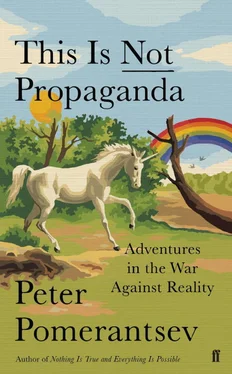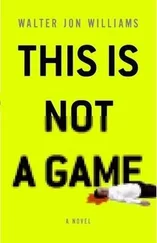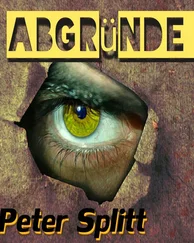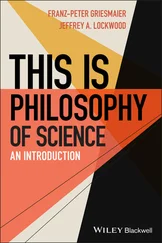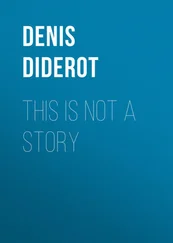The mineshafts were dark against the thundery skyline. Some of the mines were now disused. Others were rusty, but functional.
The local administration of Dzerzhinsk has weathered every revolution. In April 2014 it welcomed the separatists with open arms. The two newspapers under its control supported the Donetsk People’s Republic. When the Ukrainian army retook the town a few months later, they shelled the town hall. The administration quickly cut a deal with them. But though the town is now officially in Ukrainian territory, you still can’t get Ukrainian TV unless you had a cable package. Russian and DPR TV stations are still available everywhere. Dzerzhinsk may be in Ukrainian territory, but it is still under the Kremlin’s informational sovereignty.
The pro-Ukrainian activists were jumpy. There was Oleg, an older man with a grey moustache and a cap. He had been one of the miners who helped bring down the Soviet Union in the great strike of 1989, blocking the roads with broken glass to stop the Kremlin’s tanks. Volodya was younger, with big arms and a boyband fringe. He was a miner too but had worked in Sweden for several years. He knew things didn’t have to be this way.
Volodya and Oleg were sure the administration wanted the activists, with their annoying anti-corruption rallies, out of town. They were worried Kiev was ready to abandon them.
‘If there’s no mention of us on TV, then it won’t be a big deal if the town is lost,’ said Volodya. ‘We’re being erased.’
In the front of his van was a stack of leaflets:
7 TO 12 YEARS PUNISHMENT FOR EVERYDAY SEPARATISM:
CALL THIS NUMBER IF YOU SPOT AN EVERYDAY SEPARATIST!
HOW TO SPOT AN EVERYDAY SEPARATIST?
– CALLS FOR RUSSIA TO INVADE
– INSULTS UKRAINIAN VALUES
– SPREADS LIES
– PLANTS DEFEATIST FEELINGS
I asked Volodya where he had obtained the leaflets. He told me with no little pride he had made them himself. I asked whether that was such a good idea.
‘The telephone numbers on them aren’t even real,’ he said. ‘They’re just to intimidate people. We’re all alone here. We need to do something.’
We arrived at a Soviet block of flats, rising above an area of wooden shacks, several of which had been blown apart. The Ukrainian army base was five hundred metres away and this area was hit frequently. Oleg showed us the shrapnel holes in the metal door of the apartment block. Some women were on a bench outside the front door. They were angry that the Ukrainians had put their base near here. There had been no fighting when the town had been part of the DPR. The Ukrainian army had brought the war with them. One woman told me how a shell had exploded through her balcony.
Oleg got angry. ‘Our mayor is a separatist. That’s why the army is here. He should be in prison.’
‘I worked all my life for pennies, and what’s my reward?’ said a woman going past in a sunflower-patterned dress. ‘Bombs!’
‘They came from over there – those are Ukrainian positions! That’s not DPR,’ shouted one of the women. Later, she showed me a crater in the ground. A tree had collapsed into it. ‘Look,’ she said. ‘It’s clear it came from the Ukrainian position.’
It didn’t seem clear at all. I thought it unlikely the Ukrainians could shell themselves from five hundred metres away. But this wasn’t about piecing together evidence. Journalists who had travelled the region had warned me about this phenomenon: people would rearrange the evidence to fit the world view they saw on television, however little sense it made.
‘The Ukrainians are bombing each other!’ said someone else. ‘The Pravy Sektor wants to march on Kiev and they’re fighting each other.’
‘It’s the Americans. They’ve come here to take our gas. I heard there are wounded American soldiers in the local hospitals.’
Oleg was becoming increasingly irate, shouting at the women that they were traitors. They started shooing him away. He took off his shirt and showed them a bullet wound: he said the Russians had shot at him when he was delivering food to the front lines. He said Putin was in Ukraine because he was afraid that Russia would fall apart. The women said Putin wasn’t afraid of anything.
Oleg went to the car and came back with the leaflets and started handing them out.
‘Ha – you think we’re afraid of this?’ The women laughed and threw the papers in the bin.
Then they turned to the cameraman and me and started shouting at us.
‘You’ll re-edit what we say anyway. Why should we trust you? Nobody wants to hear the Donbas!’
That phrase again, repeated here like a mantra: ‘Nobody hears the Donbas.’ It reminded me of a prayer, a religious lamentation for a lost God, the recurring theme of the Psalms crying out to a vanished God; the Yom Kippur prayers that beg God to hear the people.
‘O God who answered Abraham, Jacob and Isaac, O God who answered us in Sinai, Hear, Hear, Hear the Donbas!’
*
I woke up in the billiards room. It was still dark and I nearly collided with some soldiers who were slumped, fully clothed, on sofas. One soldier was sleeping with his head on the floor, propping up his fat torso; he was so exhausted that he didn’t notice he was sleeping in a half-headstand. Outside, the rose garden and tennis court were just becoming visible in the dawn light. The roses had wilted and the tennis net was missing. I could hear rhythmic splashing: a soldier was doing breaststroke in the outdoor pool. The light was coming on fast, revealing summer houses and garages, high-security fences, the hills beyond and the dark green, almost black pine forests of the Luhanschina. We were north-east of Dzerzhinsk, on the edge of the territory held by Ukraine, where it bordered the Luhansk People’s Republic.
We were bivouacked on the country estate of a deposed local minigarch, formerly a senior judge in the territory now held by the ‘separatists’. He was now lying low in Kiev, waiting to see which side would win. There was a hyperrealist portrait of his wife in the billiards room: a plump, grinning blonde lying in a summer field with a garland of red poppies over her head.
In a cottage near the pool an officer was making breakfast: chopped cabbage and corned-beef meatballs. The TV was bursting with war propaganda. The Ukrainian president was in military fatigues, inspecting well-equipped troops. There were slow-motion clips of proud wives waving soldiers off to war or meeting them by the train with tears of joy. It was the sort of war propaganda that was used to build national morale and spur mobilisation everywhere throughout the twentieth century.
But there was something strange: for all the war visuals it was never defined as a war rhetorically. On TV the president spoke of an ‘Anti-Terrorist Operation’, an ATO. ‘What the hell is an ATO?’ cursed the officer as he chopped more cabbage. One of the clever twists of the Kremlin’s approach was that it waged war without ever openly declaring it, undermining the narrative of fighting a clear enemy.
Later, the soldiers took us to the front line. Every vehicle was a different make. I sat in the back of a small Nissan jeep and was told to look out of the window to watch for separatist snipers. The window had been shattered in a previous gunfight and was held together with Scotch tape. You couldn’t see a single thing through it.
We stopped on the edge of a bluff opposite the separatist positions on the other side of the river. You could just about see them with the naked eye. ‘If they start shooting, jump away from the cars,’ said the commander, known as the ComBrig. ‘They will aim for that.’
The ComBrig ordered heavy artillery to spread out along the bluff in a show of strength. Then he timed how long it took the separatists to get their people into position: a ruse to get the other side to reveal where they had hidden their forces on the far side of the bluff. The story was that new Russian units had recently arrived.
Читать дальше
